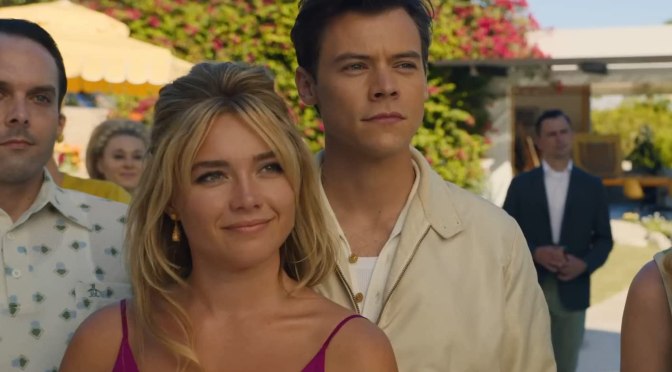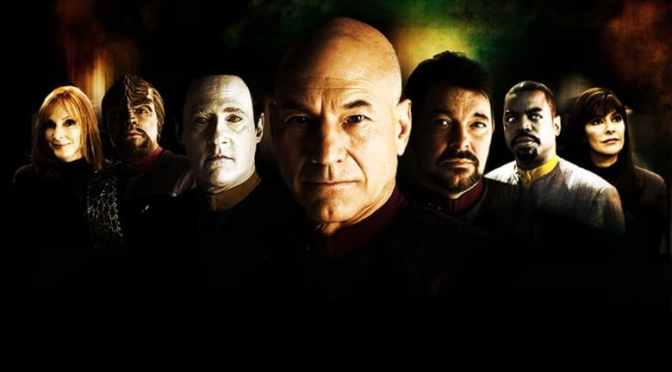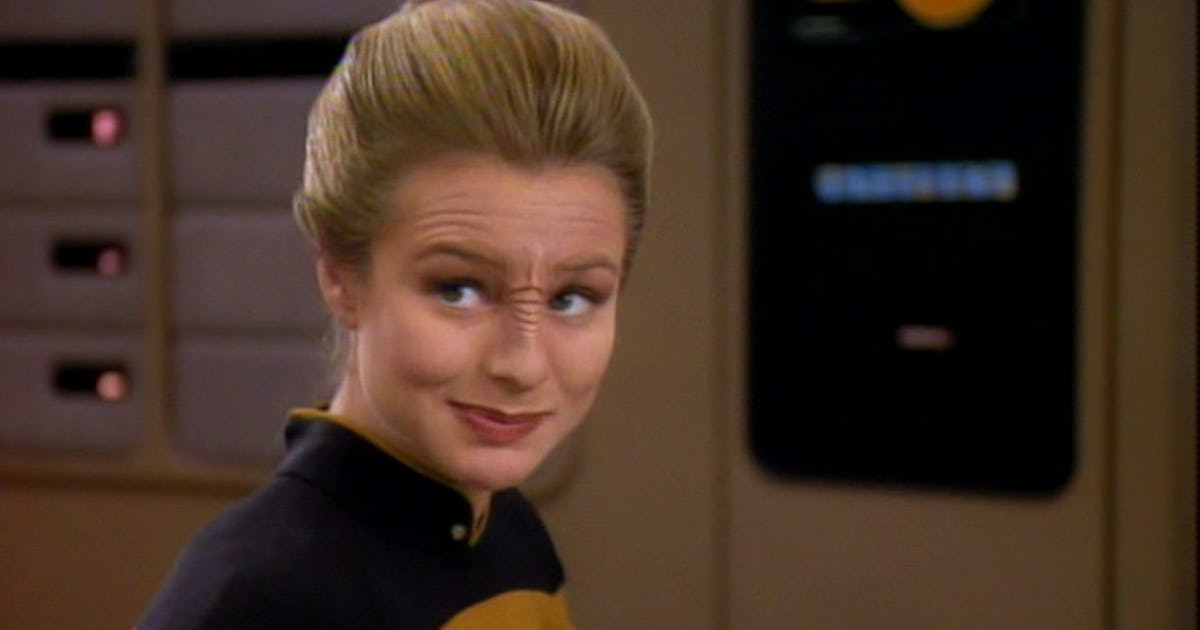TO BOLDLY REVIEW #15 – STAR TREK: VOYAGER (1995 -2001) – SEASONS 1 – 7
Created by: Rick Berman, Michael Piller and Jeri Taylor
Based on Star Trek: by Gene Roddenberry
Main Cast: Kate Mulgrew, Robert Beltran, Roxann Dawson, Jennifer Lien, Robert Duncan McNeill, Ethan Phillips, Robert Picardo, Tim Russ, Garrett Wang, Jeri Ryan etc.
Notable guest stars: Kurtwood Smith, Marina Sirkis, Dwight Schultz, Joel Grey, Sarah Silverman, John De Lancie, The Rock, Michael McKean, Jason Alexander, Virginia Madsen, Tom Morello etc.
Theme music composer: Jerry Goldsmith
It’s been over a year since I reviewed the Star Trek: Deep Space Nine here. Thus, much of 2023 was spent watching the seven series of Star Trek: Voyager. The main concern with this cultural project of watching every Star Trek show and film released is that I could get serious franchise fatigue. However, Voyager was a fantastic series with some of my favourite ever Trek episodes experienced within the seven seasons.
Paramount Pictures commissioned the series after the cancellation of Star Trek: The Next Generation to run alongside Deep Space Nine in the schedules and launch their new UPN network. Created and developed by Rick Berman, Michael Piller and Jeri Taylor, Voyager uses the template of a Federation crew exploring new worlds and making contact with unknown species, but with a serious goal in place – to return home.
Because in the first episode, The Caretaker, Voyager is enveloped by a powerful energy wave that strands it in the galaxy’s Delta Quadrant, more than 70,000 light-years from Earth. I think this critical narrative drive raises the stakes and sense of jeopardy throughout the series and also gave the writers the opportunity to introduce alien species as recurring characters, namely the Kazon, Vidiians, Hirogen, and Species 8472. Having said that, the main nemesis ultimately ended up being the Borg.
Voyager was the first Star Trek series to feature a female commanding officer, Captain Kathryn Janeway (Kate Mulgrew), as the lead. Mulgrew is a terrific actor and provided formidable characterisation throughout. Interestingly, Geneviève Bujold, was originally cast as Janeway, but quit a day and a half into shooting the pilot and was replaced. Mulgrew is notably supported in the ensemble cast by Robert Beltrani, Robert Picardo, Tim Russ, and the later introduction of fan favourite, Borg designation ‘Seven-of-Nine’ portrayed by Jeri Ryan. Robert Picardo as the hologram Doctor was also especially entertaining with many fine storylines.
I enjoyed the dynamic set-up of Starfleet officers having to work with rebels such as the Maquis, and that conflict provided much drama, pathos and joy throughout the series as their relationships developed. Further, important new Trek discoveries were introduced during the show such as: holo-emitters (so the doctor leave the ship and participate in more episodes), a tachyon core, trans-warp coil, Astrometrics lab, detailed information on the Borg and Delta Quadrant inhabitants, quantum slipstream drive, nano-viruses and access to the Borg’s Transwarp hub.
So, to end this summary I’d like to pick SEVEN of my favourite episodes – one from each season. They represent some of the best examples of Voyager, an often brilliantly written, well acted, funny and moving science fiction series.
** MAY CONTAIN SPOILERS **
VOYAGER – SEVEN GREAT EPISODES (FROM EACH SEASON)
SEASON 1 – CARETAKER
The opening two hour pilot is a terrific introduction to the players and storylines which will inhabit the next seven seasons. On the hunt for Maquis rebels finds the Voyager crew dragged into the Delta Quadrant, where they lock horns with the omnipotent power that is the ‘Caretaker.’ As well as establishing all the main players from Starfleet, the show successfully welcomes series mainstays Kes and Neelix.
SEASON 2 – TUVIX
What is essentially a version of The Fly (1989) in space, Neelix and Tuvok get combined at a molecular level to create a new character called Tuvix (Tom Wright.) What initially seems quite goofy is in fact a heartfelt exploration of morality and ethics. Janeway has an almost impossible decision to make with character actor, Wright, excelling and imposing pathos as the tragic Tuvix.
SEASON 3 – SCORPION – PART 1 and 2
Just when you thought things couldn’t get worse for Voyager they meet a foe even the Borg are fearful of, namely Species 8472. In this brilliant two-parter, Janeway and her intrepid crew find themselves caught in the middle of a war between the Borg and Species 8472. These thrilling episodes also saw the first appearance of ‘7 of 9’ (Jeri Ryan.)
SEASON 4 – YEAR OF HELL – PART 1 and 2
A truly epic two-parter with a story that could easily have made an incredible feature film. The abuse of power via time travel is at the core of the story as Kurtwood Smith’s Annorax obsessively changes his time to his own will as part of the Krenim Imperium. Janeway are enslaved under threat of being wiped from existence but fight back with tremendous resilience as the writing, directing and acting reach a peak for the series as a whole.
SEASON 5 – COURSE: OBLIVION
A direct sequel to Episode 24 from Series 4, Demon, Course: Oblivion is a brave episode for a number of reasons. It has a dreamy, surreal and latterly nightmarish quality to the style and the storyline, notably the ending, is one of the bleakest in Trek history. What is so clever is that as the writing and performances make us care for the characters when they begin to perish, even though we know nothing is what it seems.
SEASON 6 – BARGE OF THE DEAD
‘7 of 9’ (Jeri Ryan) took a lot of the character development plaudits during the last three seasons, but Roxann Dawson as B’Elanna Torres had some terrific episodes too such as this and Lineage in season 7. She is brilliant in this episode as her psyche is breached by a near-death experience and has to confront her family’s past and the heft of Klingon lore and history.
SEASON 7 – BODY AND SOUL
Obviously Star Trek contains episodes that are very serious and dramatic, but it has its fair share of comedic shows too. This re-imagining of gender swap comedy, All of Me (1984), finds ‘7 of 9’ (Jeri Ryan) switching bodies and mind with the Doctor (Robert Picardo) to hilarious effect. Now Picardo has always demonstrated sharp wit throughout Voyager, but Jeri Ryan is particularly impressive as she successfully mimics the Doctor’s mannerisms to hilarious effect, contrasting her usual deadpan and stoic Borg personality.





































